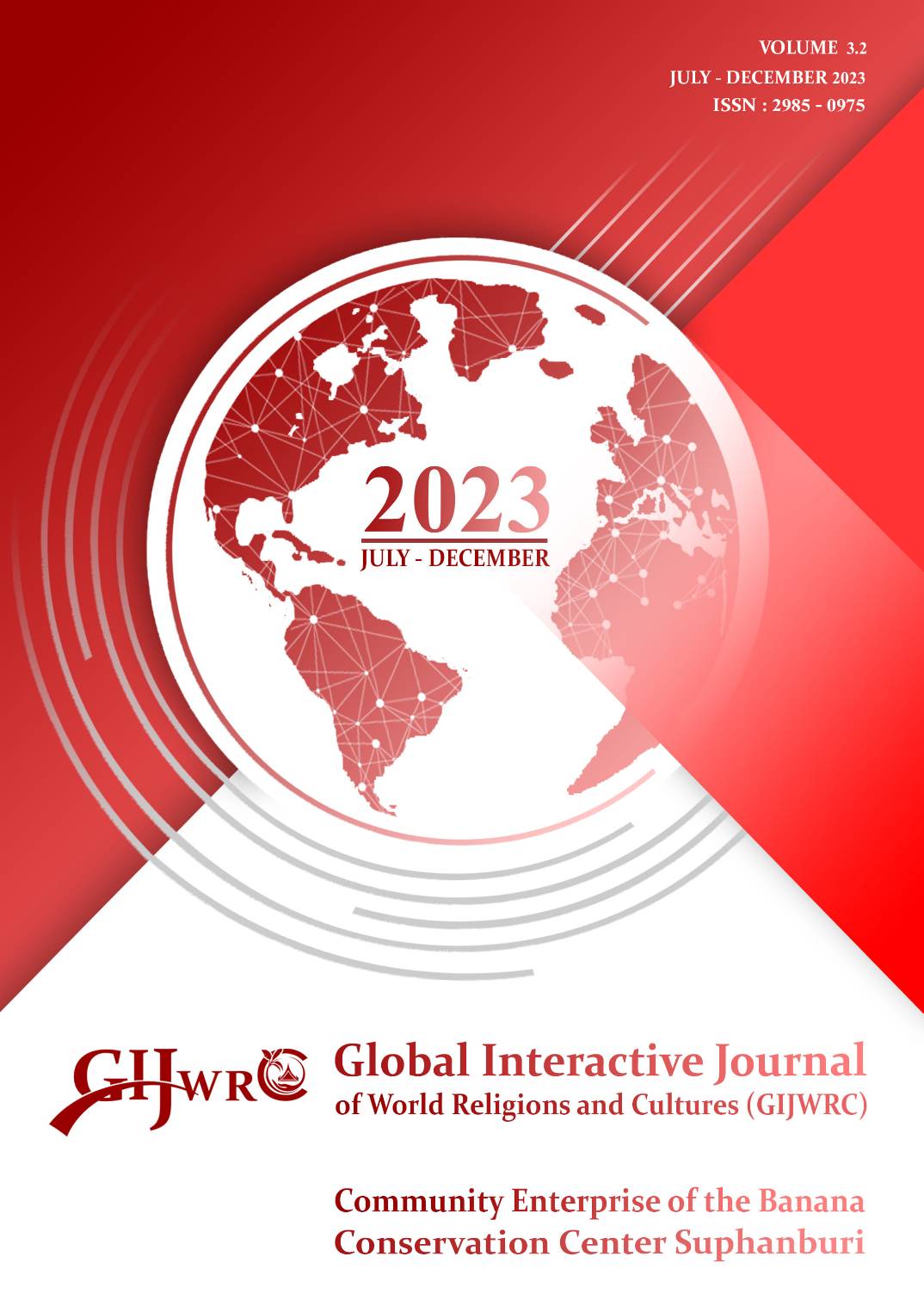PRESIDENT JOHNSON AND SPEECH IN VIETNAM WAR: VIETNAM WAR IN AMERICAN ATTITUDE
Main Article Content
Abstract
The research entitled “President Johnson and Speech in Vietnam War: Vietnam War in American Attitude. The research objectives: 1) To study President Johnson's speech on the Vietnam War in conjunction with what happened in Vietnam during his presidency from 1964-1968. 2) To study President Johnson's political imagery through speeches as propaganda, to generate political support from the Americans and from around the world. The methodology of the research used the speech was a formal speech used in an appropriate occasion or communicative agenda in a given situation. Speeches had to contain new information, creative ideas, issues and content that made the audience understand the topic. In addition, studying the text of the speech, the timing and the US international political context was importantly, that is, the period from 1963-1965 was an internal political period between South Vietnam and the United States. studying the period and the situation in Vietnam, the researcher used propaganda theory to analyze the case of President Johnson's political image creation, whether it was the choice of media words. The content of the speech sentences which would be studied together with the text of the speech.
This research aimed to present a President Lyndon B. Johnson speech from 1964 to 1968 under the Vietnam War situation. It was the period the United States took full active role in Vietnam to deter the invasion of the communist Viet Gongs. The study found that President Johnson made the Vietnam issue so important under the Americanization policy, his speech has been a political acknowledgment for the public. The Americans tried to launch propaganda that communists were villains as an international threat.
Article Details
References
Asawasiri Lapee E. (2013). Politicians' images and electoral behavior of
people at local level: a case study of the election of the mayor of Khuan Lang municipality. Songkhla Province in the Journal of Academic Resources. 24(1):187-199. Retrieved May 17, 2023, from https://journal.oas.psu.ac.th/index.php/asj/article/view/176.
Brian McNair. (1995). An Introduction of Political Communication.
Routledge, London.
Lyndon B, Johnson. (1964, August 4). Report on the Gulf of Tonkin Incident.
Retrieved date. 11 April 2023, from https://millercenter.org/the-presidency/presidential-speeches/august-4-1964-report-gulf-tonkin-incident.
Lyndon B. Johnson. (1964, August 5). Remarks on Vietnam at Syracuse
University. Retrieved date.1 May 2023, from https://millercenter.org/the-presidency/presidential-speeches/august-5-1964-remarks-vietnam-syracuse-university.
Lyndon B. Johnson. (1965, April 7). Address in John Hopkins University.
Retrieved April 11, 2023. From https://millercenter.org/the-presidency/presidential-speeches/april-7-1965-address-johns-hopkins-university.
Lyndon B. Johnson. (1967, September 29). Speech on Vietnam. Retrieved May
, 2023, from https://millercenter.org/the-presidency/presidential-speeches/september-29-1967-speech-vietnam.
Lyndon B. Johnson. (1968, March 31). Remarks on Decision not to Seek Re-
Election. Retrieved April 15, 2023, from https://millercenter.org/the-presidency/presidential-speeches/march-31-1968-remarks-decision-not-seek-re-election.
Pratum Ruekklang. (2010). Political public relations. Pathumthani: Bangkok
University Press.
Ruj Rohitrattana. (2021). The Vietnam War and US Propaganda Creation
since 1997. 1955-1975. Master of Arts thesis. History Department of History, University Srinakharinwirot.
Suthiluck hopes peace. (2005). Strategies for building image in the teaching
document, Public Relations Strategies course series. Nonthaburi: Sukhothai Thammathirat Open University.
Sawitree Suwansathit (1993). Drafting English speeches for important Thai
people to speak, in Journal of Language Review. 14(1): 8-13. Retrieved April 16, 2023, from: https://www.culi.chula.ac.th/publicationsonline/ files/article2/l7QczFiJglTue121627.pdf.


